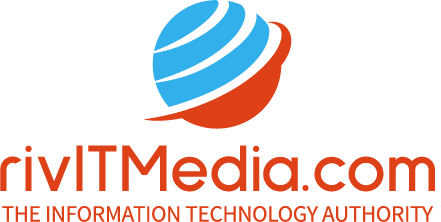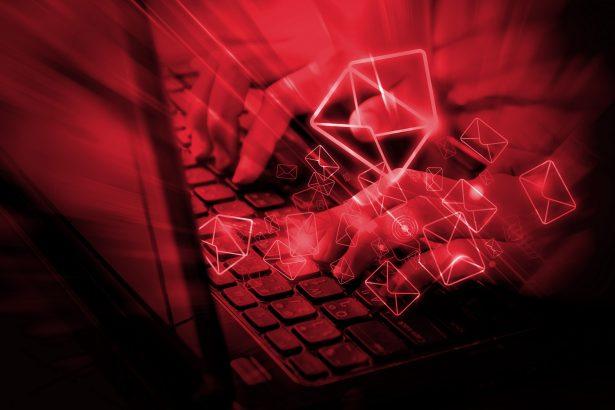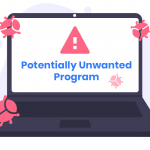In the realm of cyber threats, the “Chase Bank Invoice” email scam has surfaced as a cunning and deceptive phishing attempt, masquerading as an invoice from Chase Bank. This malicious campaign aims to trick recipients into believing they made a purchase for Norton Antivirus and encourage them to call a fake support line. This article delves into the intricacies of the scam, detailing its actions, consequences, providing detection names, and offering a comprehensive removal guide. It is crucial to emphasize that this spam mail is in no way associated with the legitimate JPMorgan Chase Bank, N.A.
Understanding the “Chase Bank Invoice” Email Scam
The “Chase Bank Invoice” email scam operates under the guise of a legitimate invoice from Chase Bank, claiming the recipient made a purchase for Norton Antivirus. The email prompts recipients to call a provided phone number under the pretense of reversing the transaction. However, the true intention is to deceive victims into disclosing sensitive information and sending money to the scammers.
Actions and Consequences:
- False Invoice and Purchase Claim: The email falsely presents an invoice for Norton Antivirus, indicating a purchase amount and encouraging the recipient to call the provided support line if they find the charge suspicious.
- Fake Support Line and Refund Scam: The provided phone numbers are part of the scam, leading victims to scammers posing as support representatives. The goal is to initiate a refund scam where victims are tricked into granting remote access to their devices.
- Remote Access and Deceptive Refund Process: Scammers request remote access, claiming it’s necessary to reverse the charge. Victims are asked to sign into their online bank accounts, and while the screen is manipulated to show fake transactions, scammers request the return of supposed excess funds.
- Financial Loss and Privacy Risks: Victims may face financial losses, believing they are returning excess funds. Additionally, the scam poses severe privacy risks as scammers may attempt to gather personally identifiable information and financial details.
Threat Summary:
- Name: “Chase Bank Invoice” spam email
- Threat Type: Phishing, Scam, Social Engineering, Fraud
- Disguise: Fake Chase Bank invoice for a Norton Antivirus purchase
- Support Scammer Phone Numbers: +1(855) 773-1735, +1(408) 791-8286, +1(808) 829-3136, +1(520) 357-3657, +1(833) 835-8431, +1(209) 589-0866
- Symptoms: Monetary loss, unauthorized online purchases, changed online account passwords, identity theft, illegal access to the computer.
Prevention and Removal Guide
- Avoidance of Suspicious Emails: Be cautious of unexpected emails, especially those claiming unauthorized transactions. Verify the legitimacy of such communications through official channels.
- Verification of Invoices and Purchases: Cross-check any unexpected invoices or purchase claims by directly contacting the respective company through official contact information, not the details provided in the suspicious email.
- Never Share Sensitive Information: Avoid disclosing personal and financial information over the phone, especially if prompted by unsolicited emails or calls.
- Remote Access Vigilance: Never grant remote access to unknown or unverified entities. Legitimate organizations will not request remote access for refund processes.
- Immediate Disconnection from Internet: If remote access has been granted inadvertently, disconnect the device from the internet to halt any ongoing manipulation.
- Password Change and Account Review: Change the passwords of potentially compromised accounts, and review account activities to ensure no unauthorized transactions have occurred.
- Security Software Scan: Conduct a thorough scan of your device using reputable security software to identify and eliminate potential malware or threats.
- Report to Authorities: If you believe your private data has been exposed, contact the appropriate authorities. Report any instances of fraud or identity theft promptly.
Conclusion
The “Chase Bank Invoice” email scam serves as a stark reminder to remain vigilant against phishing attempts and fraudulent schemes. By understanding the tactics employed by scammers and adopting preventative measures, users can protect themselves from financial loss, privacy breaches, and identity theft. Staying informed and cautious is key in navigating the digital landscape safely.
Text presented in the “Chase Bank Invoice” spam email letter
Subject: Invoice Revised Service Payment
CHASE
CUSTOMER HELPLINE
+1(855) 773-1735
INVOICE TO :
DEAR USER,
Date: 21-Dec-2023
Invoice: CHASE-F8JMC3
Description Norton Device antivirus protection 2023
Qty 01
Price $478.65
Total $478.65
Sub-total : $ 478.65
Tax : 00%
Payment Method – auto debit
Total : $478.65
Your transaction successfully
Processing
Chase Update Information :
This service message was sent to you as a Chase Bank customer to inform you about the transaction updates of your account.
Contact our head office at +1(408) 791-8286 if you did not make the above transaction or you find the debit suspicious.
CHASE
ADMINISTRATOR




